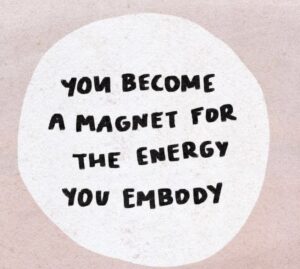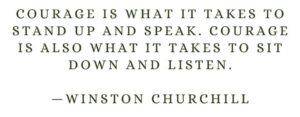When we are provoked by something someone says or does there is a moment of choice when we could mess things up or we could save them from messing up!
How to respond – rather than react – at these times is a choice, though it doesn’t necessarily feel like that. Our gut instincts, our heart and emotions, our mind, our bodies, our faces get engaged in some way or another and our sense of reason gets lost as we express our reaction in any number of ways. Essentially, when we become embroiled in the emotional reaction we are experiencing and our sense of reason is compromised we do not typically consider we have a choice but to react spontaneously – often to our detriment – but, not always.
Let’s consider the good, the bad and the ugly of reacting quickly. The good thing is, our strong and first reactions may be the most honest ones. They might best reflect the degree of hurt we are experiencing about the other’s offensive behaviour. It might say – literally – what needs to get said that we have till now hesitated to express. These and other reasons support reacting with whatever comes to us!
And then there are those not so good reasons to react in the moment we are offended. One of the reasons is we may have misinterpreted what was said. We may not hear through what is happening for the other person that is important to them. We may not hear something that would be good for us and the relationship. We may cause the other person extreme hurt – with a quick unthoughtout reaction – and cause prolonged dissension.
Then, to name a few uglies – we might have missed the point and escalate a dynamic to ridiculous heights. We may be reacting to historical provocations that are unrelated to the dynamic between us and the other person. Another possibility is we might act and speak in such a strong and destructive way that the relationship ends altogether. We may agonize for a long period afterwards and experience ongoing and unreconcilable shame and self-blame and regret.
This week’s Conflict Mastery Quest(ions) blog invites you to consider the choices you had about an interpersonal dispute in which you reacted quickly (this is a dispute you already experienced and are revisiting to consider the good and the bad and the ugly of it) .
- What was that dispute about?
- To what did you strongly react?
- How would you describe your reaction?
- What do you consider good about your reaction at the time?
- What do you consider bad about your reaction?
- What was ugly about your reaction?
- At what point did you have a choice in how to react?
- What reasons do you suppose you chose that reaction at the time?
- If you think you didn’t have a choice why would that be the case?
- If you had to do it over again- knowing what you know now – what other choices regarding your responses might have served you and the relationship better?
- What else occurs to you as you consider these questions?
- What insights do you have now that you didn’t have before you answered these questions?
(Popular – from the archives)



 With the discovery of mirror neurons in the early 1990’s, many scientists came to realize that we understand others not by thinking, but by feeling their experience. That is, mirror neurons let us not only “simulate” others’ actions. They also let us reflect the intentions and emotions behind those actions. For example, when we see someone smile our mirror neurons for smiling become activated in response, too, creating a sensation in our own mind of the feelings we associate with smiling.
With the discovery of mirror neurons in the early 1990’s, many scientists came to realize that we understand others not by thinking, but by feeling their experience. That is, mirror neurons let us not only “simulate” others’ actions. They also let us reflect the intentions and emotions behind those actions. For example, when we see someone smile our mirror neurons for smiling become activated in response, too, creating a sensation in our own mind of the feelings we associate with smiling. I don’t know about you but, I expect you share this experience. There are disputes I look back on and I wished I’d had the courage to step up to say what was on my mind. Then, there are those other occasions when I wish I had kept my mouth shut! In either case, I have considered that we also need compassion and dignity and self-respect to manage these situations well – whether to stand up or sit down reflects the most prudent choice.
I don’t know about you but, I expect you share this experience. There are disputes I look back on and I wished I’d had the courage to step up to say what was on my mind. Then, there are those other occasions when I wish I had kept my mouth shut! In either case, I have considered that we also need compassion and dignity and self-respect to manage these situations well – whether to stand up or sit down reflects the most prudent choice. In our efforts to maintain good relationships with friends and family there are times we might begin to wonder whether it is a healthy and sustainable relationship. And this week’s Conflict mastery Quest(ions) blog focuses on when we determine a relationship isn’t working out. (Another blog will consider when someone else ends the relationship.)
In our efforts to maintain good relationships with friends and family there are times we might begin to wonder whether it is a healthy and sustainable relationship. And this week’s Conflict mastery Quest(ions) blog focuses on when we determine a relationship isn’t working out. (Another blog will consider when someone else ends the relationship.)